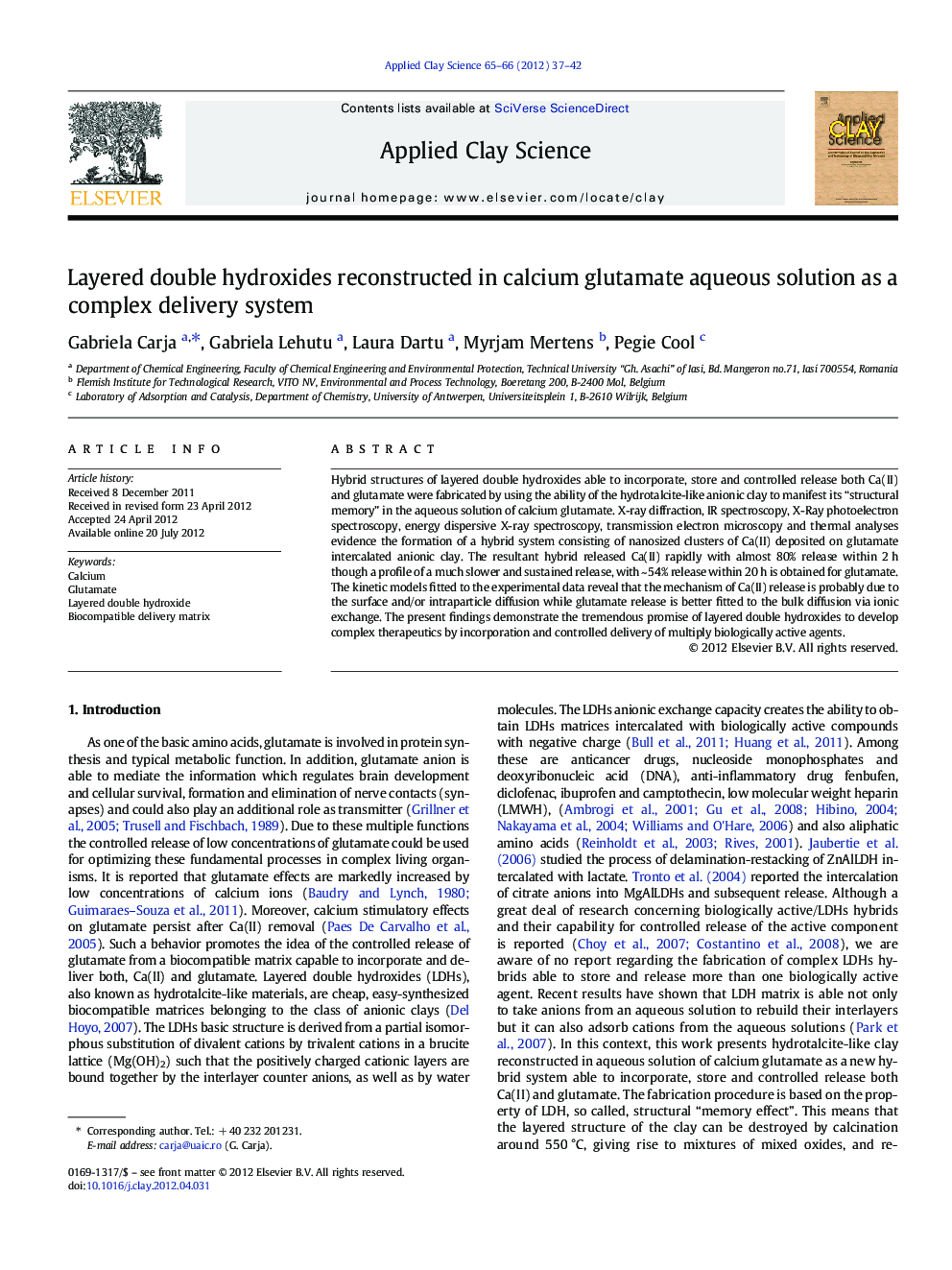| کد مقاله | کد نشریه | سال انتشار | مقاله انگلیسی | نسخه تمام متن |
|---|---|---|---|---|
| 1695175 | 1519103 | 2012 | 6 صفحه PDF | دانلود رایگان |

Hybrid structures of layered double hydroxides able to incorporate, store and controlled release both Ca(II) and glutamate were fabricated by using the ability of the hydrotalcite-like anionic clay to manifest its “structural memory” in the aqueous solution of calcium glutamate. X-ray diffraction, IR spectroscopy, X-Ray photoelectron spectroscopy, energy dispersive X-ray spectroscopy, transmission electron microscopy and thermal analyses evidence the formation of a hybrid system consisting of nanosized clusters of Ca(II) deposited on glutamate intercalated anionic clay. The resultant hybrid released Ca(II) rapidly with almost 80% release within 2 h though a profile of a much slower and sustained release, with ~ 54% release within 20 h is obtained for glutamate. The kinetic models fitted to the experimental data reveal that the mechanism of Ca(II) release is probably due to the surface and/or intraparticle diffusion while glutamate release is better fitted to the bulk diffusion via ionic exchange. The present findings demonstrate the tremendous promise of layered double hydroxides to develop complex therapeutics by incorporation and controlled delivery of multiply biologically active agents.
Figure optionsDownload as PowerPoint slideHighlights
► Nanosized calcium on layered double hydroxides intercalated with glutamate as a delivery system of both calcium and glutamate.
► The kinetic models were fitted to the experimental data.
► Complex therapeutics able to incorporate and control deliver multiply biologically active agents.
Journal: Applied Clay Science - Volumes 65–66, September 2012, Pages 37–42